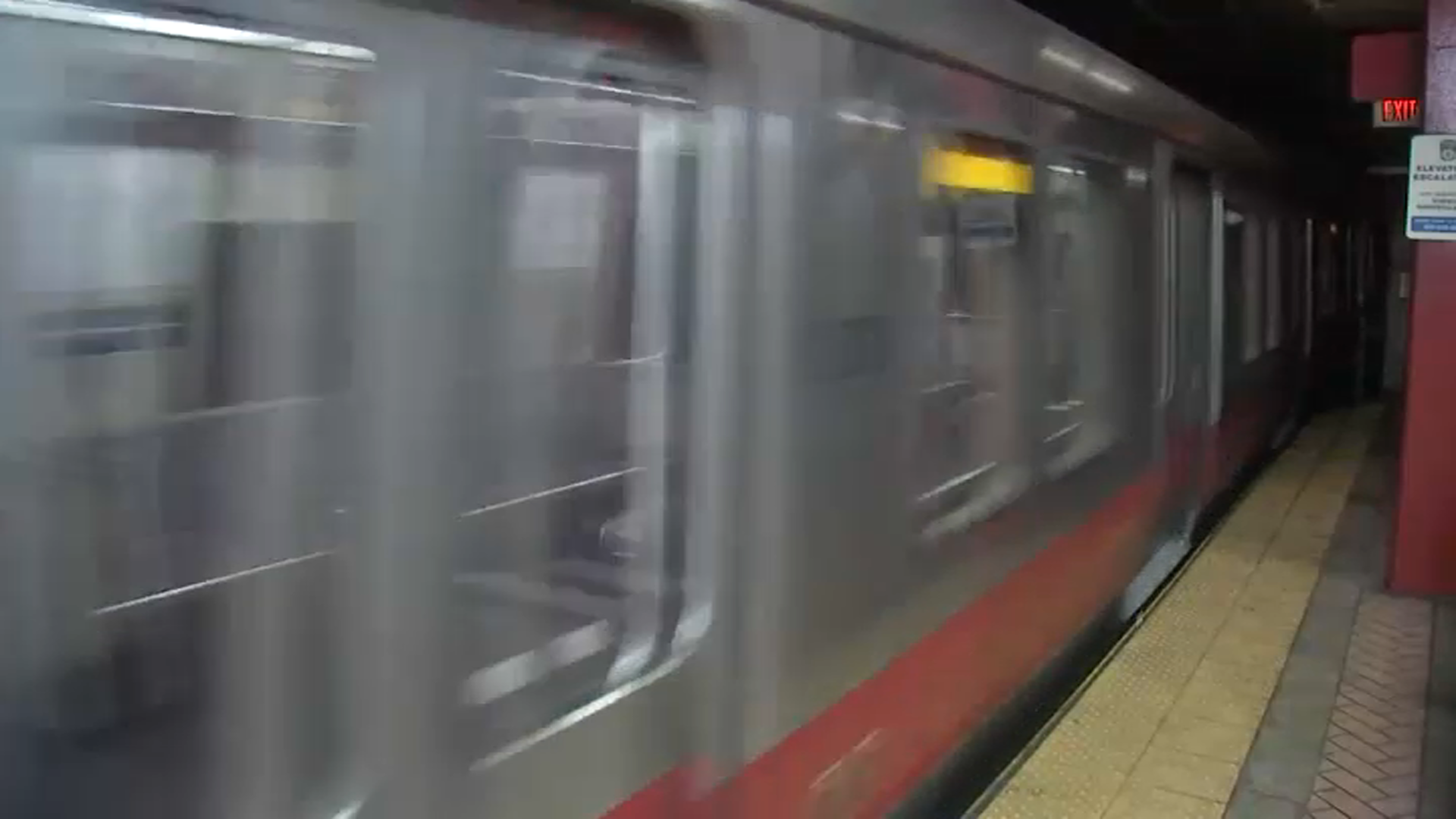On the same day that one head of the Legislature's Transportation Committee said decision-makers have no choice but to "do something dramatic" to fix the MBTA, Massachusetts Gov. Charlie Baker defended the transit agency he oversees by arguing that, for most riders, it's really not that bad.
The MBTA was already facing a nearly unprecedented federal investigation over safety failures and a legislative oversight hearing before an Orange Line train burst into flames last week and a Red Line train with faulty brakes on Monday rolled out of the rail yard and hundreds of feet up the track.
With those latest incidents in mind, Rep. William Straus, who is helping to lead the Legislature's probe into the beleaguered agency, said Tuesday he believes the state has reached a tipping point.
"I don't think we have any choice," Straus told WBUR when asked if Massachusetts had crossed a Rubicon and could move quickly enough to implement drastic measures. "Even more chilling is, everyone who saw (the Orange Line fire) had to think: what if that was my son? What if that was my parent? This is an unfortunate situation. I don't think we needed to be here because all the things that were identified years ago have sadly come true."
Get New England news, weather forecasts and entertainment stories to your inbox. Sign up for NECN newsletters.
"Here we are today and we have to do something dramatic," Straus added.
Baker, who has come under increasing scrutiny during his final year in office over his management of the MBTA, struck a different tone Tuesday.
While he called the train fire a "colossal failure," Baker said he needs to give "credit where credit is due" and cited the system's on-time performance ratings. Most of the T's rapid transit lines have been on time for 85 to 90% of trips, Baker said, with the commuter rail network above 90% and buses in the high 70s.
"That's what the experience most riders every single day have. That's no excuse for the screw-ups and the incidents that we're talking about here. It's no excuse for that," Baker told reporters after an unrelated event. "But there's 600,000 trips every day that for the most part work out the way they're supposed to, and there are a lot of people that work at the T who have a lot to do with that."
The latest disruption took place just after 5:30 a.m. Monday, when a two-car train with an operator on board rolled out of the rail yard and onto the passenger service section of the Red Line at Braintree Station.
An MBTA spokesperson said the train had "diminished braking capacity" and continued rolling until it stopped about 800 feet north of the Braintree stop.
"There were no injuries nor damage, but service was disrupted as T personnel worked to return the disabled, two-car set to the rail yard," said MBTA spokesperson Joe Pesaturo. "The MBTA notified the (Federal Transit Administration) and (Department of Public Utilities) of the incident, and a full investigation is underway. Investigators will work to determine whether the rules and procedures for moving trains were properly followed."
The MBTA's repeated failure to prevent runaway trains was one of the most pressing safety faults FTA investigators found, prompting the federal oversight body to order immediate fixes in June while it continues its probe.
Between Jan. 1, 2021 and the FTA's probe, the MBTA reported five different "runaway train" incidents in yards or during maintenance, investigators said.
MBTA officials previously said they were working on new safety protocols and policies to prevent such slip-ups and would explore a "blue flag" program to prevent trains from moving improperly.
Asked about the incident Tuesday, Baker said he believes it had "very marginal impact on service." When a reporter observed it was the sixth runaway train incident in the past 18 months, he replied, "That's one of the reasons the FTA is here."
Baker also said the transition to new Red and Orange Line fleets, whose vehicles are being manufactured by Chinese firm CRRC, will help address some problems. In October 2020, officials pushed back the project completion date by a year for the Red Line and 15 months for the Orange Line.
"The biggest issue with CRRC is the pandemic. We basically lost two years of international transport and work during that period," Baker said. "We continue to add Orange Line trains on an okay clip. But it's a post-pandemic clip. It's not the clip we were operating on pre-pandemic. We think it's really important that we get to the point where virtually all of the old trains on the Orange Line, which are really the ones that create many of the issues and concerns we and the FTA have, get off the tracks as soon as possible."
Lawmakers are authorizing hundreds of millions of dollars for the MBTA to undertake the work to address safety faults the FTA identified. While budget-watchers warn the transit agency is on track to careen off a fiscal cliff next year, Straus -- who raised eyebrows last week by suggesting it might be time to eliminate the MBTA as a standalone authority -- said Tuesday he does not think a funding injection will solve all of the T's problems.
"While it will take money, I think people have to understand it's not a matter of just writing a check to the T and it will get better," Straus told WBUR. "The taxpayers through the sales tax provide the T over $1 billion a year into its budget. Funds are there. It's something else, which I called last week the missing ingredient within the T as an organization. My example I point to is we abolished the Turnpike Authority ten years ago when it had really no purpose, and frankly, no one misses the Turnpike Authority today."
A bit more than two years ago, Straus helped lead the charge in the House to generate new revenues for the state's transportation sector with a package of tax and fee increases his branch approved. The measure died in the Senate and legislative leaders have shown little interest in reviving the debate since then.
Straus's assessment drew nearly immediate criticism from LivableStreets Alliance Executive Director Stacy Thompson, who followed him as the next guest on WBUR moments later.
"I disagree with Rep. Straus about restructuring the MBTA," she said. "Obviously, we all want to have a good transit system, but it's very much putting the cart before the horse, and frankly, I think it's potentially an attempt to distract from the core issue, which is deep underinvestment in the system."



